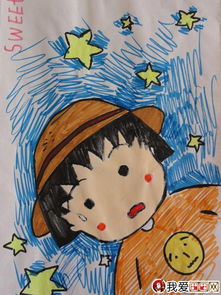现在完成时与一般过去时的区别
萌到你眼炸
997次浏览
2021年01月19日 23:16
最佳经验
本文由作者推荐
河南科技学院分数线-应聘快递员
现在完成时与一般过去时的区别
现在完成时与一般过去时都表示一个在过去完成的动作。
它们属于不同时间的两种时 态,现在完成时属于现在时态的
范畴,而一般过去时属于过去时态的范畴。
下面我们先从构成形式上区别一下两种时态。
现在完成时的动词形式为:“have
(has)+动词的过去分
词”
像
have/has done
:
而一般过去时的动词形式为:
“动
词的过去式”像
did .
例如:
Jack’s mother took him to school every day when he
was in primary school.
杰克在小学时他妈妈每天送他上学。
Maria has never read any Chinese stories.
玛利亚从未
读过中国故事。
2.
基本用法不同:
“对现在影响”
、
“持续到现在”
正如前面所说,现在完成时是与现在有关的时态,属现在时
态的范畴,现在完成时与一般过去时 最大的区别有两点:
它侧重于过去的动作对现在造成的影响;而一般过去时是一
种过 去时态,
侧重于表示过去的动作,
与现在无关。
例
如
:
Yesterday I went to the zoo.
昨天我去了动物园。
(仅说明
昨天去了动物园,与现在无关)
Li Lei has read the book.
李磊已看过那本书。
(说明李磊
了解那本书的内容)
另外,
现在完成时还可以表示动作从过去某个时候开始一直
延续到现在,强调动作的延续性它常与
f or
及
since
引导的
一段时间状语连用。例如:
He has lived here for ten years.
他已在这儿住了
10
年了。
比较:
1.) The Greens have worked in China since 1998.
格林一家自
1998
年到现在一直在中国工作。
The Greens worked in China in 1998.
格林一家
1998
年在
中国工作。
2.) He has lived in the country for a long time.
他在农
村生活了很长时间。
(现在还在农村)
He lived in the country for a long time before he came
to town.
他进城前在农村生活了很长时间。
3.) She has bought a bicycle.
她买了一辆自行车。
(现在她
有一辆自行车了。
)
She bought a bicycle last year.
去年她买了一辆自行车。
4.) He has won a prize for his invention.
他因为他的发明而获奖了。
He also won a prize last year.
他去年也获奖了。
注意:
在与
for
及
since
引导的一段时间 状语连用时,句子的谓语
动词必须是延续性动词,终止性动词不可和一段时间连用。
例如:他当 兵已三年了。
误:
He has become a soldier for three years.
误:
He joined the army for three years.
正:
He has been a soldier for three years.
正:
He has been in the army for three years.
1.
连用的时间状语不同
与现 在完成时连用的时间状语除了上面所说明的由
since
和
for
引导的一段 时间外还有:
already, yet, still ,just, so far,
in the last(past), before, ever, never
等。而一般过去时则
常与
ago, yesterday, last, in 2000, just now
等连用。
注意:
现在完成时态不可与
yesterday, last week, two days
ago
等之类的表示具体的过去时间的状语连用。例如:
Have you ever picked flowers or stepped on the grass
in the park?
你曾在公园里摘过花或曾踩过草地吗?
Father bought that watch ten years ago.
爸爸
10
年前买了那块手表。
I have never seen the film before.
我以前没有看过这部影片。
注意:在
when
引导的特殊疑问句中不可用现在完成时,而
只可用一般过去时。 例如:
When did you visit Japan?
你什么时候访问过日本?
Exercises:
◇同步练习
动词填空:
1. saw
I ___________(see) Tom last Friday.
2. Did
,
go
________you ________(go) to the
Great Wall last summer?
3.
When ____did__ you ___start____(start) to
live in China?
5.
----The train ____________ (leave) already.
----When ________ the train
_________(leave)?
6.
It is five years since I ________(meet) you
last.
7.
Where _______ you ______(be) for the last
two weeks?



